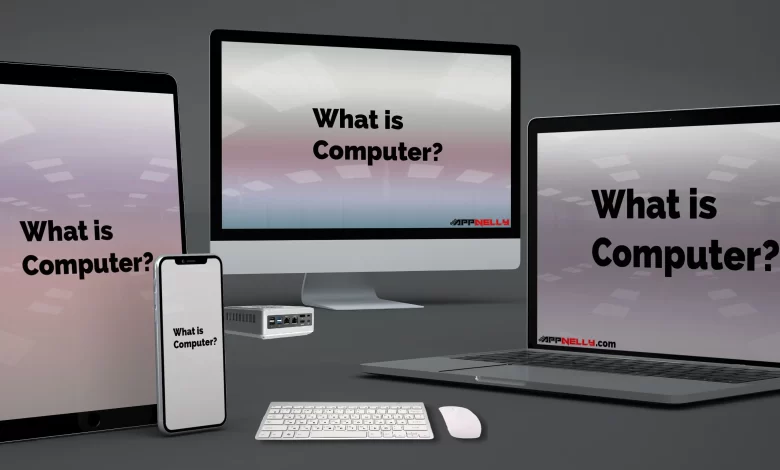What is a Computer? The meaning of computer

According to Wikipedia, A computer is a digital electronic machine that can be programmed to carry out sequences of arithmetic or logical operations (computation) automatically.
I like this definition from dictionary.com which defined a computer as a programmable electronic device designed to accept data, perform prescribed mathematical and logical operations at high speed, and display the results of these operations.
For children under the age of ten, you can define a computer as an electronic device that accepts data, process data, store data, and output information. (Note: the electronic device that primarily does four things: 1. Accepts data, 2. Processes data, 3. Stores data, and 4. Output information.)
From what you can see above, these 3 definition of computer explains the same thing in different ways that end with the same meaning.
You can easily remember the definition of a computer by breaking it into two parts: The first part tells exactly what a computer is or its nature. For example, you can say: a computer is a programmable electronic device or electronic machine… (choose between an electronic device or electronic machine which best suit your lips.)
The Second part gives more information about computers by describing what computers do. For example: Remember that a computer is an electronic machine designed to accept data, perform prescribed mathematical and logical operations at high speed, and display the results of these operations.
Now that we know what a computer is, how does it work?
Well, It works by combining the four basic functions of a computer: input, processing, storage, and output. Let’s define computer again, applying these four processes.
A computer is a programmable electronic device (programmable because you can manipulate or make it do almost anything) designed to accept data (via input devices), perform prescribed mathematical and logical operations at high speed (processing via the system unit or the CPU), store its calculated results or data (via storage devices) and display the results of these operations (via output devices).
For children under the age of ten, a computer is an electronic device that accepts data (through input devices), process data (processing through the system unit or the CPU), store data (through storage devices), and output information (through output devices).
It is good to note that all the main parts of a computer system are involved in these four processes.
- Input: Your keyboard and mouse, for instance, are just input devices—ways of entering information into your computer. There will be an upcoming detailed post on input devices. Subscribe to our newsletter and follow us on social media, so you don’t miss any of our future posts.
- Memory/storage: Your computer probably stores all your documents and files on a hard drive or SSD: a huge magnetic memory. But smaller, computer-based devices like digital cameras and cellphones use other kinds of storage. There will be an upcoming detailed post on Storage Devices. Subscribe to our newsletter and follow us on social media, so you don’t miss any of our future posts.
- Processing: Your computer’s processor (sometimes known as the central processing unit or system unit) is responsible for carrying out prescribed mathematical and logical operations, similar to how your brain works.
- Output: You see or sense what the computer is doing or has done via output devices. Example: your monitor (screen), printer, speaker, etc. There will be an upcoming detailed post on output devices. Subscribe to our newsletter and follow us on social media, so you don’t miss any of our future posts.
In conclusion, there’s more to computers than what’s written in this article. The information provided here is the basic thing everyone seeking the meaning of computer should know.
What’s your thought? Let us know in the comment section and be sure to subscribe to our newsletter and follow us on social media, so you don’t miss any of our future posts.